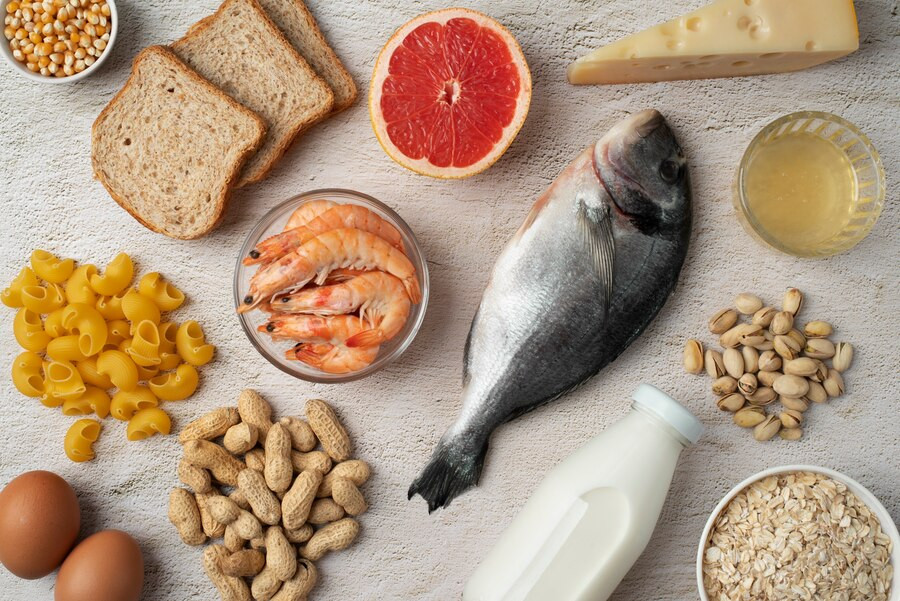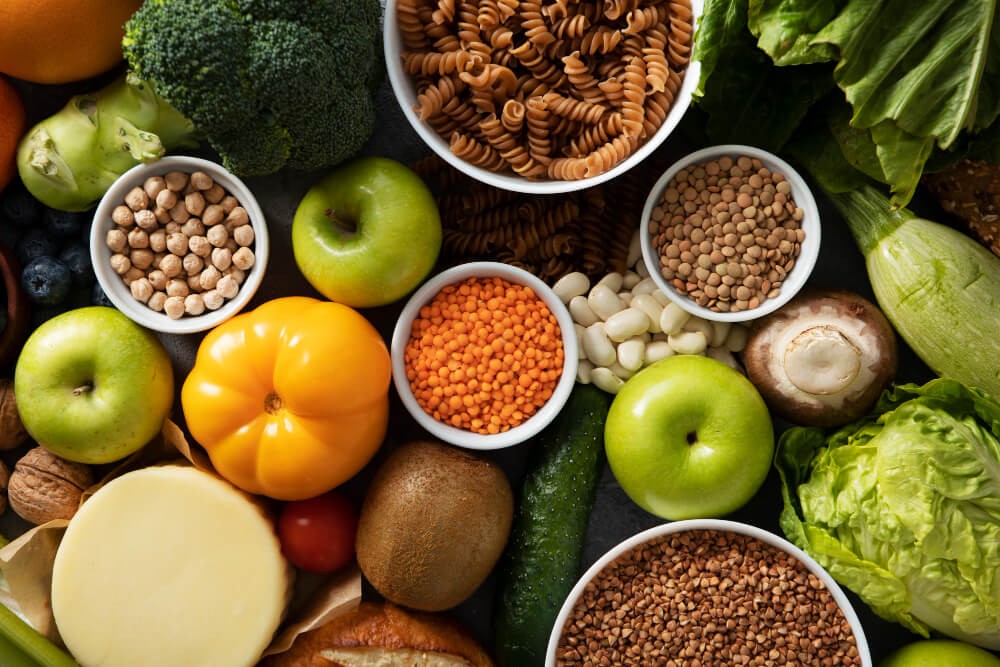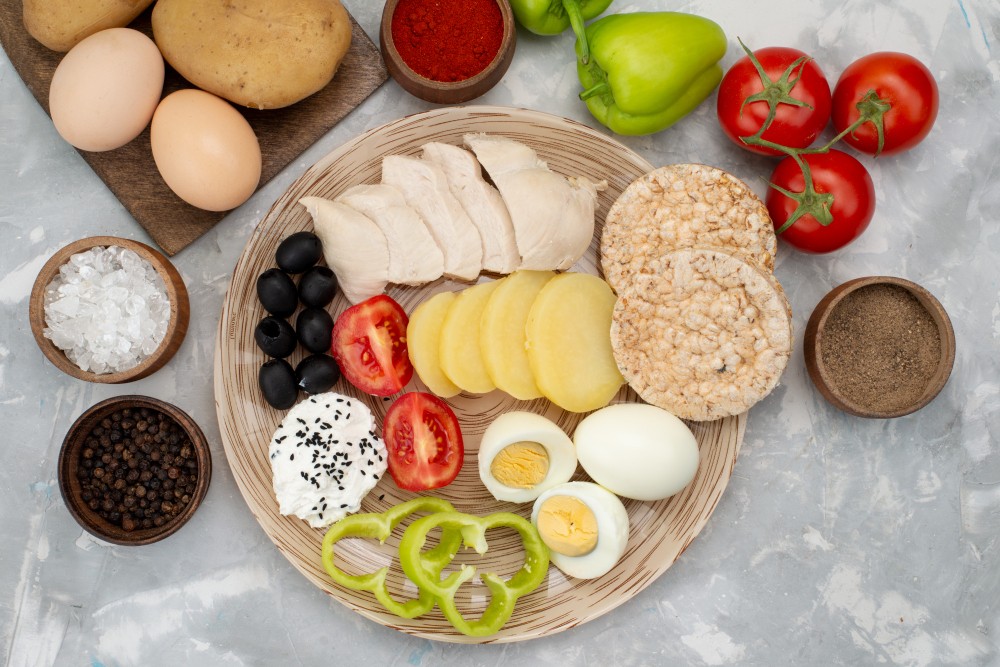Protein is one of the three essential macronutrients the body requires, alongside carbohydrates and fats. It is found in both animal and plant-based foods.
Protein is composed of complex chains of amino acids that form various structures and perform crucial functions in the body.
Benefits of Consuming High-Protein Foods
As one of the primary macronutrients, incorporating high-protein foods into your diet is vital for several reasons:
Supports Muscle Growth and Maintenance
One of the key benefits of consuming high-protein foods is their ability to promote muscle growth and maintenance. During exercise, particularly strength training, muscle fibers can undergo microscopic damage. Protein is essential for repairing and rebuilding these muscle fibers, leading to increased muscle mass and strength with adequate protein intake.
Aids in Weight Loss and Weight Management
High-protein foods are highly effective for weight loss and management. This is because the body expends more calories digesting protein compared to carbohydrates or fats. Additionally, protein increases satiety, helping you feel fuller for longer, which can reduce overall calorie intake.
Moreover, high-protein foods can help curb appetite and reduce cravings. The amino acids in protein influence hunger-regulating hormones, leaving you more satisfied after meals.
Improves bone health
Research indicates that sufficient protein intake can enhance bone health and lower the risk of osteoporosis, particularly in older adults. Protein is crucial for bone formation and calcium absorption, which are necessary for maintaining strong and healthy bones. Post-menopausal women, who are more vulnerable to osteoporosis, can benefit from adequate protein intake to preserve bone strength and decrease the risk of fractures.
Supports Immune System Function
Antibodies, which are specialized proteins in the body, play a vital role in identifying and combating pathogens such as bacteria and viruses. Consuming high-protein foods boosts the production of antibodies, enhancing the immune system's ability to fight infections.
Protein is also needed to repair tissues damaged by infection or injury. By ensuring adequate protein intake, the body has the necessary resources to recover more quickly and prevent further complications.
Supports Enzyme and Hormone Function
Protein is essential for producing enzymes and hormones. Enzymes, a type of protein, accelerate chemical reactions in the body, including digestion and metabolism. Without enzymes, these reactions would occur too slowly to support normal bodily functions.
Hormones, which are chemical messengers, regulate various bodily functions such as growth, reproduction, and metabolism. Consuming high-protein foods ensures the body has the raw materials necessary to produce these critical enzymes and hormones.
Given these numerous benefits, it's important to meet your daily protein needs. Consult with a doctor to determine the appropriate protein intake for your individual needs. You can also use the Ai Care health consultation service, available for download from the App Store or Play Store.
Looking for more information on nutrition, diet tips, and healthy eating? Check here!
- dr Hanifa Rahma
Dr. Sruthi M, MBBS (2022). 10 Science-Backed Reasons to Eat More Protein. Available from: https://www.medicinenet.com/10_science-backed_reasons_to_eat_more_protein/article.htm
Kris Gunnars, BSc (2023). 10 Science-Backed Reasons to Eat More Protein. Available from: https://www.healthline.com/nutrition/10-reasons-to-eat-more-protein
WebMD (2022). High-Protein Diets: Do They Work?. Available from: https://www.webmd.com/diet/ss/slideshow-high-protein-diet
Medline Plus (2021). What are proteins and what do they do?. Available from: https://medlineplus.gov/genetics/understanding/howgeneswork/protein/
Jon Cooper (2022). Benefits of Protein. Available from: https://www.webmd.com/diet/benefits-protein
International Osteoporosis Foundation. Protein and Other Nutrients. Available from: https://www.osteoporosis.foundation/health-professionals/prevention/nutrition/protein-and-other-nutrients












